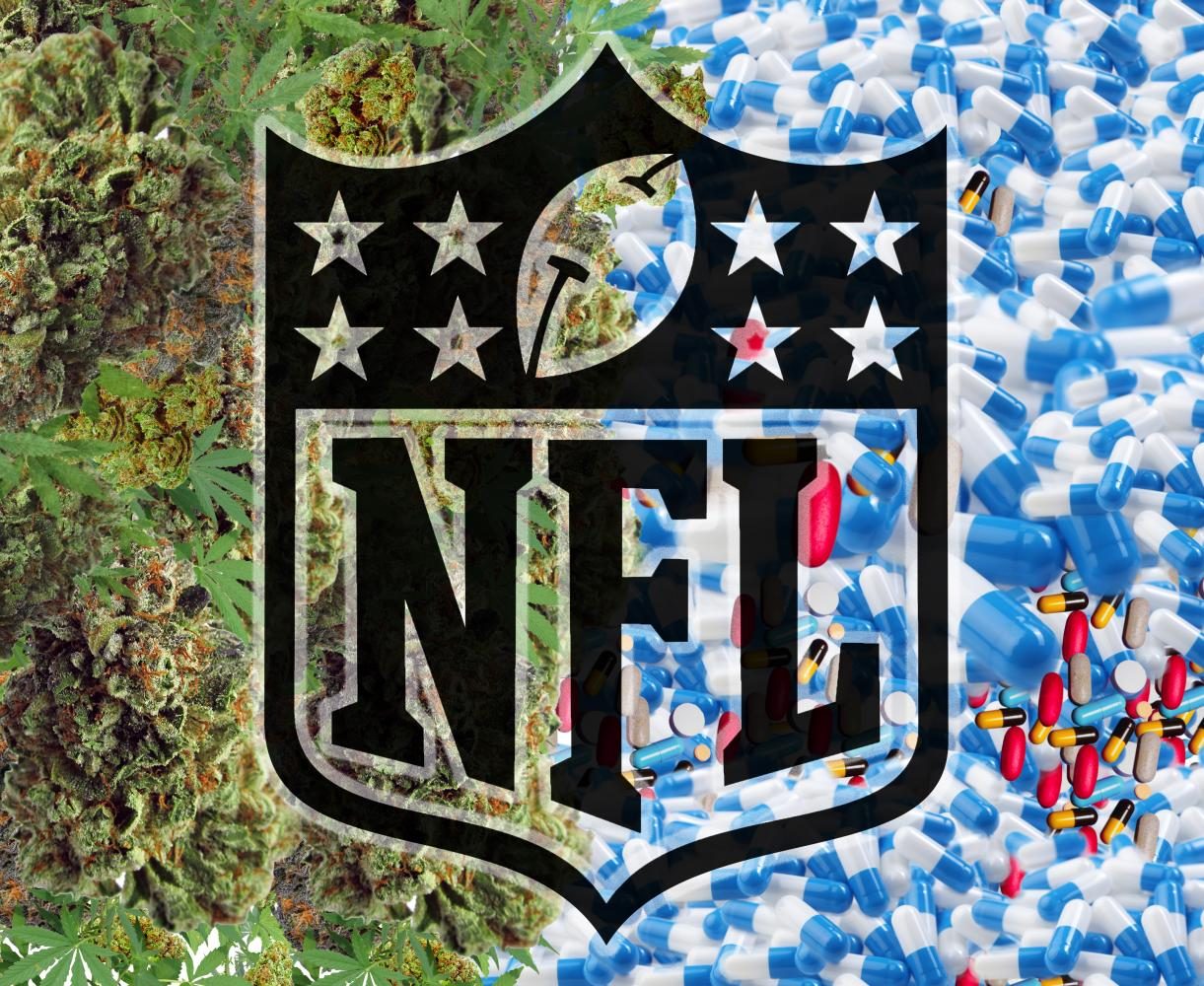Pills versus Marijuana: NFL players consider alternative pain relief
There has been conflict betweeen NFL Commissioner Roger Goodell and the NFL Player’s Association about Marijuana use.
May 1, 2017
Current and former NFL players have recently come out in support of marijuana use for pain relief. With pot becoming more socially accepted, in addition to becoming legalized in certain states, prescription pills may no longer be the safest remedy for the chronic pain some athletes suffer from.
One of the most recent advocates of marijuana in the NFL is former offensive tackle Eugene Monroe. After playing seven seasons in the league, Monroe retired, citing concerns for his current and long term health.
“Cannabinoids are a safer, less addictive alternative to opioids and can even reduce opioid dependence,” said Monroe on eugenemonroe.com, his personal webpage that advocates for change to the NFL’s banned substance list.
Noah Moore, employee at the Green Shelf in Ellensburg, agrees with Monroe and believes marijuana is mostly non-addictive.
“The repercussions of coming off of pills are significant,” said Moore, referring to those attempting to quit using prescription pills.
Moore also recognizes that pot alone cannot provide relief for all those experiencing intense pain. In some situations, stronger prescription medication is required.
A main concern regarding long term player health is the development of chronic traumatic encephalopathy (CTE).
“Over 95 percent of NFL football players’ brains tested positive for CTE in post-mortem examinations,” said Monroe on his website.
Monroe also alludes to the use of cannabidiol (CBD), the pain relieving compound found in marijuana, as a short-term neuroprotective. Monroe aims to utilize the anti-inflammatory functions of CBD for brain swelling when concussed.
The use of CBD is not limited to brain injuries.
“Most people on prescription pills are coming in for CBD,” said Levine, an employee at Cannibis Central in Ellensburg.
Those who wish to avoid the high effects of marijuana — as a whole plant— have the option of CBD to relieve pain.
Moore and Levine both support the use of pot for pain relief, but recognize the importance of prescription pills in medicine.
Moore referred to those who are suffering immensely, he said that pot alone cannot suppress their aches and pains. Levine considered that the high feeling that pot gives users may be an undesired side effect for some individuals.
A long-standing stigma is that marijuana is a gateway drug. Both Moore and Levine disagree with that notion. Levine referenced that many users are no longer buying from street vendors who may try to sell them harder drugs.
Users are “not looking for a next high from pot,” said Moore, suggesting that users do not become dependent or addicted to the high as with harder drugs.


